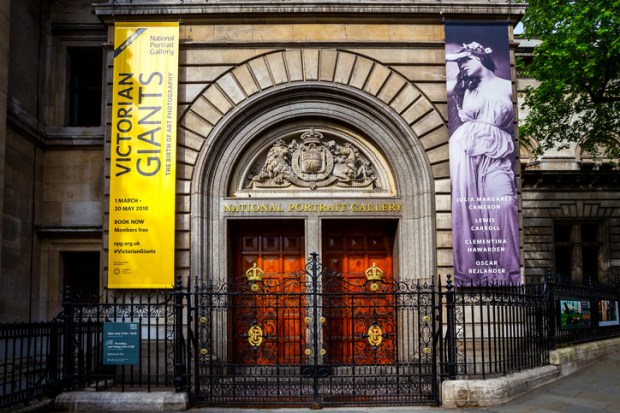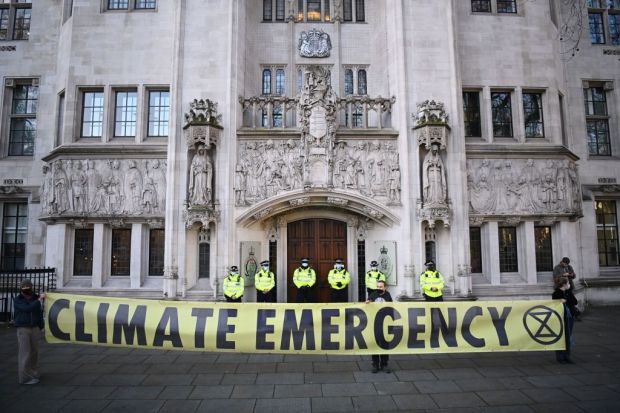When politicians take to preaching, we feel uncomfortable. When bishops take to politics and managerialism, the sinking feeling gets worse. Now it seems we should brace ourselves for more pulpit politics: a Church of England proposal suggests that church leaders could be appointed to full-time cabinet-style roles such as ‘Brexit bishop’ or ‘Covid bishop’. These plans should seriously concern any Anglican well-wisher.
After all, why would the appointments stop at Brexit and the pandemic? Knowing the C of E, it seems a racing certainty that if these proposals come to anything others would include matters like climate change and anti-racism. What about preaching the Gospel?
Hidden within proposals for political bishops is a drastic rewriting of what bishops stand for. At present, as his crook symbolises, a bishop’s responsibility is to shepherd souls. He may of course express views on theology, or morals, or even politics: but this is part of his functions as a pastor, and cannot be separated from it. The Anglican church may choose to change this and instead pay a cleric to pontificate on Brexit, or climate change, or whatever. But such a person will be not so much a pastor as a pundit: an activist, or a corporate spokesperson. Neither of these is in the least in accordance with the tradition of the Church of England.
There is also a direct threat to the political neutrality, at least in name, of Anglicanism. True, the C of E’s hierarchy, and many of its urban congregations, have long since ceased to be the Tory party at prayer and now largely comprise a congeries of well-meaning Greens, Lib Dems and metropolitan Labourites. But at least any political and social views these people express are personal.
The church itself has so far respected Jesus’ reminder in St John’s gospel that his kingdom is ‘not of this world’ – words spoken, remember, in direct reproof of direct action in his name against the forces of government. This discretion has served it well: as conservative churchman Edward Norman remarked over 40 years ago in his Reith lectures Christianity and the World Order, once a church approximates its religious teachings to adherence to a secular political creed, it undermines much of its authority as a church. This is exactly what threatens the C of E as soon as it takes an official line on such things as Covid or Brexit, or sets up a cleric as some kind of ecclesiastical shadow minister for climate change.
As if this was not enough, another idea floated involves requiring all bishops, territorial or otherwise, to be appointed for a fixed seven years, with a need to seek reappointment after that time. In Victorian times a parish priest was essentially left to attend to parishioners’ spiritual needs as he thought fit, subject only to the occasional nudge from his archdeacon and ultimate supervision from his bishop. Under these proposals he, or increasingly often she, will resemble more and more a junior employee carrying out orders under the demanding eyes of layer after layer of line management.
The church may be cash-strapped and unable to pay its priests properly or maintain its buildings. However, like other managers of ailing corporations who happily fill flip charts with complex chains of command but never seem to reduce the number of commanders, it appears to have no plans to reduce the episcopal head count. On the contrary: the new ecclesiastical administration team flowchart seems to envisage a four-layer bureaucracy: diocesans reporting to regional bishops, who would in turn report to archbishops, with suffragans under the diocesans tending ever smaller constituencies.
But the fact that this document is a missed opportunity to clear out the layers of management and focus on tending the needs of those in parishes, isn’t the worst thing about it. The biggest and most insidious threat it contains is to conscience.
Until now, the strength of the Anglican church has been its fierce tolerance of independent thought. This is defended not only in theory by the Thirty-Nine Articles, but as a matter of practice by the position of bishops as independent officers with unbreakable tenure: until 1975 for life; now until 70. This allows them freely to express their views, however awkward, and makes Anglicanism the broad and welcoming confession it is. But for how much longer?
What is being suggested to the bishops is a very different arrangement: a church where bishops report to a management hierarchy, and after a time have to seek reappointment. A diocesan with unfashionable views might well feel a need for caution if coming up for renewal; and even more so a bishop appointed as a spokesman on, say, Covid whose views had ceased to reflect those of their line manager.
There is a very present danger that if these proposals become law, the C of E will wither away as a broad church with a home for varied political and theological views. Instead it could become simply a prescriptive sect: an organisation with an official line which its prelates are expected to toe. If ever there was an effective way to make a church unattractive to all but the dreariest of zealots and and empty its pews still further, this is it.
Got something to add? Join the discussion and comment below.
Get 10 issues for just $10
Subscribe to The Spectator Australia today for the next 10 magazine issues, plus full online access, for just $10.

















Comments
Don't miss out
Join the conversation with other Spectator Australia readers. Subscribe to leave a comment.
SUBSCRIBEAlready a subscriber? Log in